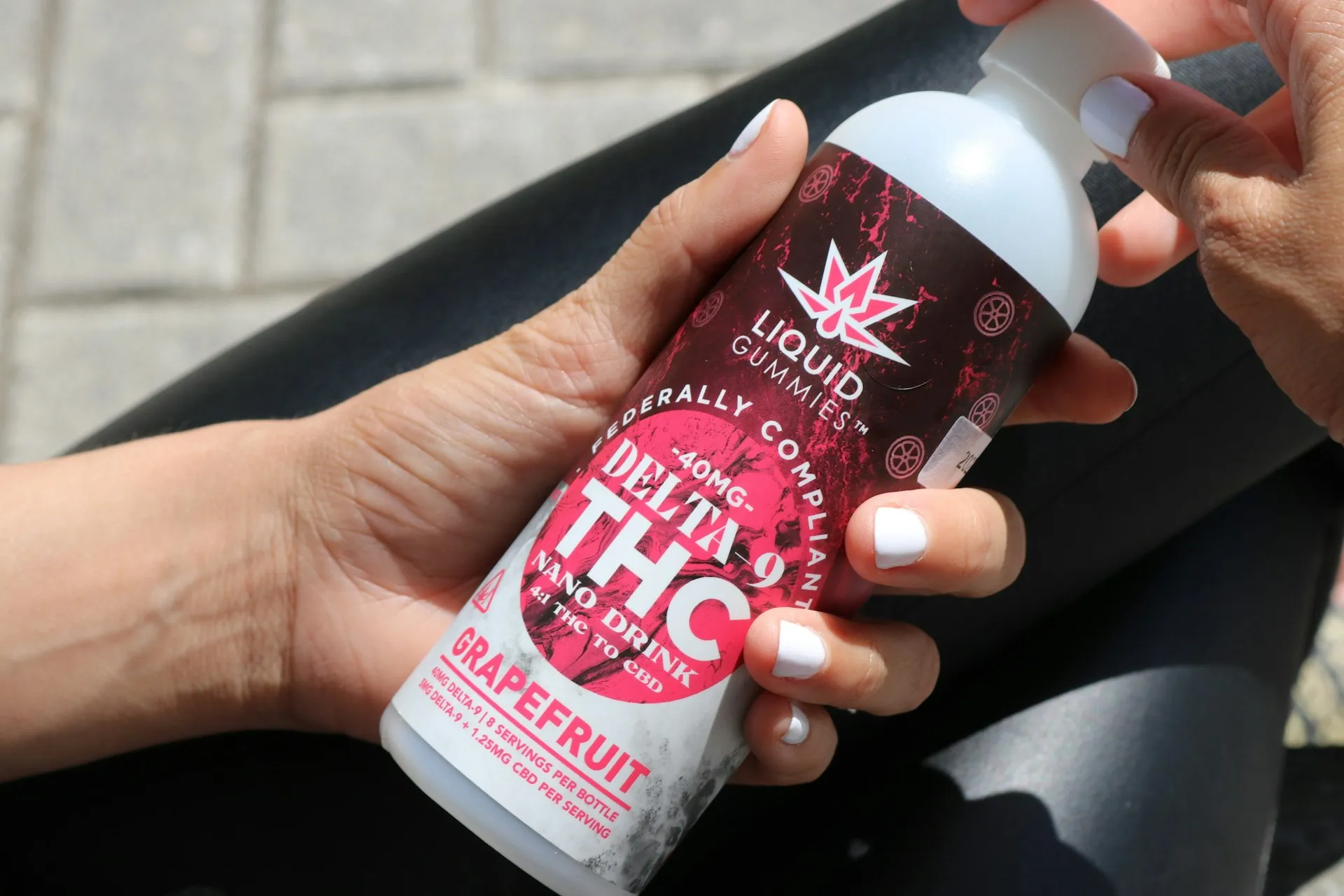Copyright Westword

You can sip a hemp-derived THC seltzer in Nashville, buy Delta-9 gummies in Austin or order a cannabis-infused tonic from your Miami hotel minibar — all without ever stepping inside a dispensary. But is all of that about to change? Folded quietly into Congress’s November 2025 government-funding deal was a clause that redefines “hemp” and effectively bans intoxicating hemp-derived THC products nationwide within the next year. The measure closes the loophole created by the 2018 Farm Bill — the same gap that fueled America’s multi-billion-dollar hemp-beverage boom. In a twist of irony, Colorado — long criticized for being too restrictive — suddenly looks less like an outlier and more like a preview of where the rest of the country is headed. Federal Reset Under the new federal language, hemp would be defined by total THC content, not just Delta-9 THC, and most psychoactive hemp products (including Delta-8, Delta-10, HHC, and THC-P) will likely become illegal to sell after a one-year phase-out period. Finished consumer goods would face a near-zero THC cap, as low as 0.4 milligrams of THC per container in some versions, effectively ending the sale of intoxicating hemp beverages, gummies, and vapes in ordinary retail channels. Congress framed the move as a public-safety fix, while the hemp industry sees it as an existential threat. “It’s a $28 billion market; 95 percent of that would go away if these hemp bans went into effect,” Jonathan Miller, general counsel for the U.S. Hemp Roundtable, says. Colorado’s Preemptive Strike Colorado took its swing at intoxicating hemp nearly two years ago. In 2023, lawmakers passed Senate Bill 23-271, capping hemp-derived THC drinks and edibles at 1.75 milligrams of THC per serving and mandating a fifteen-to-one CBD-to-THC ratio. At the time, the decision was controversial, with hemp entrepreneurs arguing that the new law locked local producers out of a fast-growing national market while states like Minnesota and Texas adopted looser rules. Families of medical marijuana patients who relied on low-THC, high-CBD medication also criticized the law for restricting access to certain products. Now that restraint looks almost prophetic, however. With Washington, D.C., now moving toward an outright federal prohibition, Colorado’s strict caps and dual-agency oversight, split between the state Marijuana Enforcement Division and Department of Public Health & Environment, put it closer to the new federal standard when compared to most of the country. According to longtime Colorado marijuana executive Rebecca Maestes-Sincere, “The intent was to keep chemically converted or higher-potency THC out of general retail and inside the state’s licensed, tested marijuana system. That protected consumers and preserved parity for operators who invested in compliance.” Still, Maestes-Sincere believes other states may have found a middle path that is more hospitable to hemp business owners. “From a Colorado brand’s viewpoint, the current rules make it hard to compete in that channel without manufacturing for export or setting up out-of-state operations. I think Colorado was right to stabilize the market in 2023, but it was worth revisiting,” Maestes-Sincere adds. One Year to Transition If approved by Congress, the coming twelve months will serve as a wind-down period for intoxicating-hemp products nationwide. Colorado regulators are expected to issue guidance on sell-through, inventory tracking and reformulation as federal deadlines approach. After this, businesses will likely face three choices: Reformulate to remain non-intoxicating (CBD, adaptogen, or functional-beverage lines). Migrate into the licensed marijuana channel, under full seed-to-sale and excise-tax compliance. Exit the intoxicating-hemp segment altogether. While that transition will hurt short-term sales, it may also simplify enforcement. Once the federal ban takes effect, interstate shipments of intoxicating hemp into Colorado will be clearly illegal, closing the loophole that allowed out-of-state e-commerce and gray-market retail to keep circulating THC products despite state restrictions. Industry Voices, Concerned Parents For many hemp beverage founders, the development feels like déjà vu — another wave of prohibition instead of progress. Aaron Nosbisch, founder of Brez and a board member of the U.S. Hemp Authority, argues that responsible operators already meet the standards Washington claims to want. “People want to have safe products sold to adults that are clean and organized, with clear labeling standards, comprehensive testing,” he argues.. “Every major player in the hemp business does all of those things. Brez does a five-panel test for every single batch that we produce. …Our labels follow all compliance from the FDA to spec. We just don’t have the same legislation around it yet, but we’re working every day to create it.” Nosbisch sees Colorado and California’s hemp restrictions as paradoxical. “When you create dispensaries that have blackout windows and armed security…you don’t invite mainstream society to experience the true benefits of the cannabis plant,” he says. Miller says there are guardrails in place at the industry level: “We have a third-party administrator that does audits…if you pass it, you get to put the U.S. Hemp Authority label on your product, which is a signal to consumers that your products uphold a particular standard of quality,” he notes. Cannabis use among Colorado teens went down in 2023 and was lower than national averages, according to the most recent data from the CDPHE, but the thought of THC products sold at retail outlets, gas stations or in online marketplaces still worries a significant portion of the public, including groups of vocal parents. One Chance to Grow Up, a national nonprofit that pushes against commercial cannabis expansion and advocates for guardrails in legal markets, praises the looming THC ban, calling it “crucial language” in a statement on November 12. “Closing the hemp-derived THC loophole left open by the 2018 Farm Bill represents a critical victory for protecting kids from the harms presented by THC, especially deceptive and unregulated intoxicating hemp products,” One Chance executive director Henny Lasley says. “One Chance to Grow Up has been urging federal lawmakers to address this issue and has made pivotal efforts to directly educate decision makers on the importance of protecting our youth by ensuring the hemp loophole is closed. We’re calling on the House to see this vital action through to the finish line by passing the budget bill and send it to the President’s desk without delay. Every day this loophole remains open, more kids get harmed. For their sake, we can’t afford to wait any longer.” Changing Market Colorado’s beverage entrepreneurs had already begun organizing to update state law before the federal shift. Last summer, Vicente LLP, led by Denver attorney Brian Vicente, who helped write Colorado’s original legalization initiative, cofounded the Colorado Hemp Beverage Coalition alongside Wana Brands, Cycling Frog, Keef, Brez, Fable, Sleeping Giant Brewing and Vertosa. According to Vicente, the coalition’s goal is simple: “Normalize cannabis consumption in a familiar format.” He describes it as “a big tent with a small focus,” uniting hemp, marijuana, and hospitality operators around raising Colorado’s serving cap from 1.75 milligrams to five to ten milligrams, and moving beyond the fifteen-to-one CBD-to-THC ratio.* Vicente argues that allowing moderate-dose THC drinks in mainstream venues could both modernize access and support the regulated cannabis ecosystem. “People are used to consuming intoxicants in beverage form,” he says. “This is about modernizing access in a safe, tested way.” That modernization effort may now collide with Washington’s new ban timeline. Economic Tension The economic gap between hemp and marijuana products has long defined the Colorado debate. Licensed cannabis companies pay steep taxes and can’t ship, bank or perform other traditional business functions freely; hemp operators bypass much of that infrastructure. With legal weed sales at their lowest since 2017 in Colorado and hemp beverages once projected to top $4.1 billion by 2028, resentment over “two sets of rules” has only grown. Industry veteran Tim Mathisen puts it bluntly: “You’re playing by two sets of rules within the same market, and at the end of the day it’s the same compound. If I’m a consumer deciding between a quick stop at the gas station versus a trip to the dispensary for the same product, it’s a no-brainer what they’ll choose.” Colorado helped invent modern cannabis regulation. Now it may help define how the hemp era ends. Whether Colorado’s early restrictions are remembered as foresight or overreach will depend on what comes next: Does Colorado build a bridge between hemp and marijuana, giving responsible brands a path to transition, or does it let the intoxicating-hemp experiment fade entirely?



